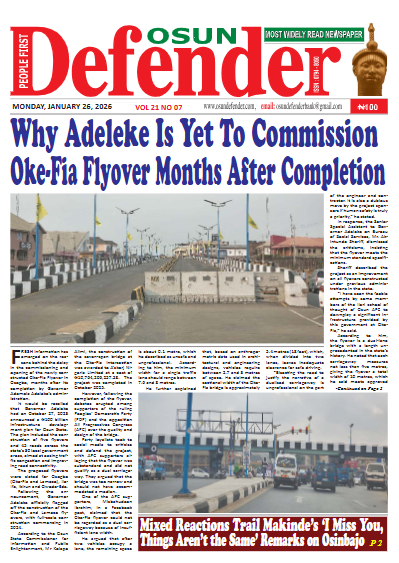Human rights lawyer and Senior Advocate of Nigeria Femi Falana has faulted the decision of the Nigerian Government to ban 50 high-profile Nigerians from travelling out of the country.
In a statement on Sunday, Falana called for the immediate withdrawal of the ban, arguing that the move by the government is reminiscent of the days of military rule.
“For the umpteenth time, I am compelled to caution the Buhari administration to wage the war against the menace of corruption within the ambit of the rule of law,” he said.
“Since the 50 high-profile criminal suspects covered by EO6 (Executive Order 6) have been placed on watch list while their passports have been seized by either the anti-graft agencies or the courts, the travel ban slammed on them by President Buhari ought to be withdrawn without any delay.”
Falana’s statement is in reaction to the announcement by the Federal Government on Saturday that 50 prominent Nigerians had been placed on a watchlist and restricted from leaving the country based on Executive Order 6, which was issued by President Muhammadu Buhari in July, “pending the determination of their cases”.
Read the full statement here.
A Federal High Court had in Abuja on Friday upheld the order, which, among other things, allows for the interim seizure of assets linked to investigation, ongoing criminal trials, and other related offences.
The executive order also empowers the Attorney General of the Federation (AGF), in liaison with relevant investigative agencies, to temporarily seize properties linked with corruption, to prevent the dissipation of such assets.
Although the Presidency had based the decision on the validation of the EO6 by the court, Falana said the move was uncalled for.
“Sadly, the travel ban is a sad reminder of the reckless placement of political opponents on security watch list and seizure of their passports by the defunct military junta,” he said.
Explaining his position, Falana said, “In Director-General, State Security Service v Olisa Agbakoba (1999) 3 NWLR (Pt 595) 340, the Supreme Court did not hesitate to condemn the violation of the right of the respondent to freedom of movement through the seizure of his passport by the appellant.
“It was the view of the Court that the right of citizens to freedom of movement guaranteed by section 41 of the Constitution and article 12 of the African Charter on Human and Peoples’ Rights (Ratification and Enforcement) Act could not be abridged or abrogated by the Executive outside the procedure permitted by law.”
The human rights lawyer also gave examples of prominent Nigerians who have been affected by such restrictions in the past and instances where the court ruled in their favour.
He said, “Apart from placing over a hundred citizens on security watch list, the passports of the late Chief Emeka Ojukwu, Mallam El-Rufai, Dr. Oby Ezekwesili, Mr.Sanusi Lamido Sanusi (now Emir of Kano) etc were seized without any legal justification by the Obasanjo and Jonathan regimes.
“It is on record that both El-Rufai and Sanusi successfully challenged the seizure of their passports at the federal high court which ordered the release of the passports and awarded damages to them.”
According to Falana, the latest travel ban imposed on high-profile Nigerians “is highly superfluous, completely unwarranted and totally uncalled for”.
“In fact, it is an ingenious design to expose the Buhari administration to ridicule,” he said.
That, he explained, is because “if the federal government had done some background check it would have discovered that the names of the 50 VIPs have long been placed on security watch list while their passports have been impounded by the anti-graft agencies or the courts as one of the conditions for admitting them to bail”.
He added, “It is public knowledge that whenever the defendants wish to travel abroad for medical treatment they usually apply for the interim release of their passports.
“Since the courts have taken judicial notice of the perilous state of medical facilities in the country such applications are usually granted. And once the suspects return from the foreign medical trips their passports are returned to the registry of the trial courts.”










